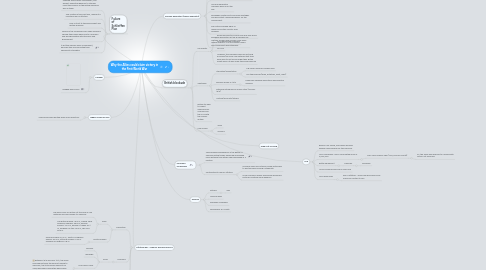
1. High cost of living
2. Weapon
2.1. Artillery
2.1.1. Gas
2.2. Machine guns
2.3. Airplanes & Zeppelin
2.4. Submarines & U-boats
3. Higher Morale of men
3.1. Submarines were hunted down more effectivly
4. British blockade
4.1. No imports
4.1.1. Reduced imports by 55% from pre-War levels
4.1.2. No supplies/raw materials
4.1.3. No coal
4.1.4. However, the Germans had such a strong economy/so many raw materials that they were able to last much longer than Britain might have if it was under the same pressure
4.2. Shortages
4.2.1. Starvation/malnutrition
4.2.1.1. 0.8 million German civilians died
4.2.1.2. No staple goods (grain, potatoes, meat, dairy)
4.2.2. Became severe in 1916
4.2.2.1. Especially because agriculture was affected severely
4.2.3. Rationing introduced in major cities (January 1915)
4.2.4. Looting/food riots/strikes
4.3. Britain still able to import supplies from colonies and the USA with the convoy system
4.4. Low morale
4.4.1. Army
4.4.2. Civilians
5. Canada!
5.1. Rugged good looks
6. Failure of Schlieffen Plan
6.1. The plan miscalculated the French military's strength and Russia's mobilization, and weren't expecting Belgium to strongly resist the invasion or the British declaring war on them.
6.2. This created a two front war, making it a long term war of attrition.
6.3. Lack of trust to the government and military planners
6.4. Failure of the Schlieffen Plan made Germans change their plans which led to confusion and disorganization with the army and government.
6.5. It left the German army unconfident, because they miscalculated their opponents' strengths.
7. Attrition war - Superior Allied Resources
7.1. Population
7.1.1. Allies
7.1.1.1. The Royal Navy of Britain cut the flow of raw materials and food supply to Germany.
7.1.1.2. The British Empire: 46.0 m, French Third Republic Republic: 39.8 m, Russian Empire: 173.2 m, Empire of Japan: 55.1 m, Kingdom of Italy: 35.6 m, The USA: 96.5 m
7.1.2. Central Powers
7.1.2.1. German Empire: 67.0 m, Austro-Hungarian Empire: 50.6 m, Ottoman Empire: 23.0 m Kingdom of Bulgaria: 4.8 m
7.2. Economy
7.2.1. Allies
7.2.1.1. colonies
7.2.1.2. Blockade
7.2.1.3. USA banks Loans
7.2.1.3.1. Between 1915 and April 1917, the Allies received 85 times the amount loaned to Germany, the total dollars loaned to all Allied borrowers during this period was 2,581,300,000.
7.3. Continuous Front
7.4. Conscriptions
8. Tanks and Technology
8.1. Tanks allowed progressing. In the Battle of Cambrai British troops advanced and gained more distance than either side had gained in 3 months.
8.2. Contributed to War of Attrition
8.2.1. Machine Guns and Artillery forced both sides to dig trenches causing a stalemate
8.2.2. More economic power and people working in factories creating more weapons
9. USA
9.1. Before USA joined, Allies were winning anyway-demoralising for the Germans
9.2. More Manpower: Had a conscripted army of 4,000,000
9.2.1. Men Came Ship by ship (300,000 per month)
9.2.1.1. So, the Allies had reserves to compensate losses; not Germany
9.3. Better Equipment
9.3.1. Trenches
9.3.1.1. Grenades
9.4. USA's Economy was also in play now
9.5. More Resources
9.5.1. war of attrition = allies now had loads more resources-certain to win
10. German Revolution (Kaiser Abdicates)
10.1. German Revolution causes political unrest within the country, distracting Germany from the war fronts.
10.1.1. Video test
